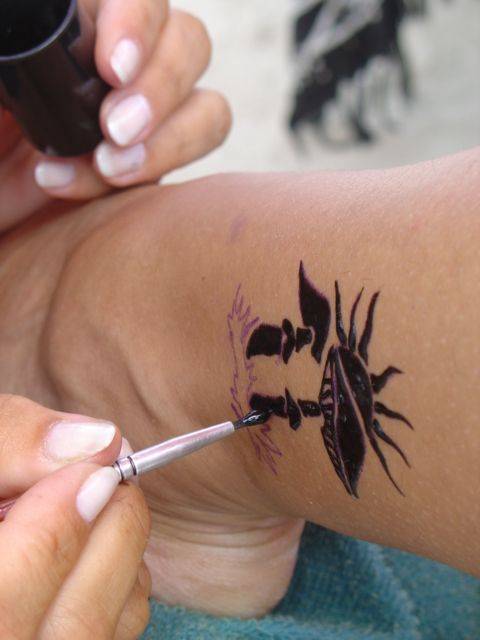A new suit filed before the New York District Court, raises the curious question regarding the ownership of tattoo designs. Solid Oak Sketches that claims to own copyrights in several tattoo designs is suing Take-Two Interactive Software and other companies associated with the video game NBA 2K16. The NBA 2K16 is a basketball stimulation video game developed by Take Two Interactive Software that features several athletes of NBA including Le Bron James, Kobe Bryant, Kenyon Martin etc.
In its complaint filed before the US District Court, Solid Oaks claims that the video game includes reproduction of several tattoo designs that are drawn by them on the bodies of the Athletes portrayed in the game. Solid Oaks in its 60 page complaint stress that the tattoos are subject matter of copyright as they are original works of authorship fixed in a tangible medium from which they can be perceived. According to Solid Oaks, since tattoo designs are imprinted permanently upon the skins of the athletes in a manner that is capable of being perceived by third parties, such designs qualify to be called a copyrightable work under the US Copyright law.
Solid Oaks claims that by using the machinima’s of the athletes along with their tattoos in the video game, the Defendants had infringed their copyrights in the tattoo designs. Solid Oaks prays for granting of a permanent injunction as well as monetary and statuary damages as a remedy for the infringing activities of the Defendants.
In a legal notice previously issued by the attorneys of Solid Oak to Take Two Interactive and submitted as part of the evidence, Solid Oaks claims that the value of eight tattoo designs in question equals an amount of USD 819,500. However, the Solid Oaks in its notice offers to grant Take Two Interactive a perpetual license for these eights designs for a one time license fee of USD 1, 144, 000. However, Take Two had declined the offer leading to the present suit.
The question of copyrightablity of tattoos has never been fully decided by a court of law. Previously One Mr. Victor Whitmill had sued Warner Brother for allegedly displaying the Tattoo design on the body of Myke Tyson in the movie Hangover 2. However, the said case was settled out of court between the parties. During one of the hearings the court had opined that “of course tattoos can be copyrighted, I don’t think there is any reasonable dispute about that. The tattoo itself and the design itself can be copyrighted, and I think it is entirely consistent with copyright law”.
While tattoos being an artistic work fixed in a tangible form i.e. fixed on human skins, tattoos can indeed be considered as a subject matter of copyright protection. However, the key question that may arise is with respect to the ownership of copyrights in the tattoos. Since tattoos are imprinted on the athlete’s body at the instance of the athlete, the ownership of tattoos should ideally vest with the athlete and not the artist who draws the tattoo. Since the chances of having a formal contract with tattoo designers is less it would be interesting to see how the court interprets the relationship between the athlete and the designer as a contract for services or as a contract of service to decide on the question of copyright ownership.
Authored by Nithin V. Kumar.
Contributed with the support of the Entertainment Law Division of BananaIP Counsels. For any entertainment law related queries please write to us on contact@bananaip.com. Our experts will revert to you at the earliest.



